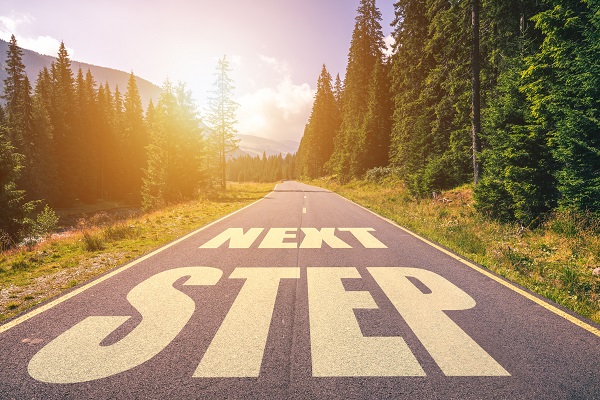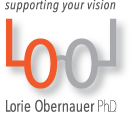by: Lorie Obernauer, Ph.D., A.C.C
Congratulations! You’re in recovery. You’ve made it through detox and your physical, mental, and emotional health feels more balanced. You have learned a lot about yourself through the treatment process and may be participating in some continuing care programs or recovery support groups. You may have started some new self-care routines. You might have some legal issues that you’re tackling. You’re probably repairing some personal relationships. You may be back to work, thinking about a new job or considering some options for volunteer work. A lot is going on and on some days you feel positive and energized. Other days, you feel depleted: nothing is really wrong, yet nothing feels exactly right.
This is the story of recovery. I’ve been there. I started my recovery in 2006. I’m still in recovery and the challenges continue. There are ups and downs, good days and bad days, lots of new emotions and new experiences. Life feels easier, lots of good things have happened, yet on some days, I wonder: is this all there is? What’s next? Fortunately, I got some great guidance about how to find an answer to that question.
Successful businesses all have a Vision Statement: a declaration of values and purpose. A Vision Statement provides a business with direction for all of its activities. So to discover my direction, to answer “what’s next” I began by crafting a Personal Vision Statement.
A Personal Vision Statement is a brief description of what you want to focus on and accomplish and who you want to become. It’s a way to focus your energy, actions and decision towards the things that are most important to you.
You can start this process by asking yourself some questions:
1. What are the things that I most love to do?
2. What is most important to me right now in my life?
3. What do I want more of in my life?
4. How do I want to feel everyday?
5. What am I meant to contribute to the world?
Then, write 3 – 5 sentences that capture your thoughts. Keep it simple, clear and brief. Include words that reflect your values and a description of how you want to show up as your best self. State positively what you want to do and who you want to become. Write it in the present tense as if it’s already happening!
Finally, use this Personal Vision Statement as a framework for making plans and decisions. If what you’re thinking or doing doesn’t align with your Vision, then adjust what you’re thinking or doing!
Writing a Personal Vision statement is something you can do on your own. You can go online and find many exercises and articles that can help you write your statement. You can also accelerate this process by working with a Life Coach. Find a coach who is trained to help you with this visioning process AND who will support you as you figure out and take the steps to live your vision.
There is a myriad of research that supports the positive impact of visioning. In studies of business and leadership, crafting and sharing vision statements with relevant constituents is considered a “best practice”. Visioning strategies are in used in the fields of science, education and technology to “re-imagine” products, processes and strategic direction. There is also growing evidence that indicates that “values clarification”, which is a major component of the visioning process, impacts life satisfaction, increases personal growth, and even resulted in a reduction in drug use among students who participated in controlled study.
I currently facilitate visioning groups at a local addiction treatment center. some of clients who have participated in the visioning process said:
“It’s the first time I feel optimistic since I’ve been in recovery.”
“Now I know where I’m headed in my life.”
“I’m reconnected to my dreams.”
“I’ve also had a vision for my business that guided my decisions. Now I have a vision for how I want to grow in my personal life.”
My grandmother used to say that “growing old is not for sissies”. Well, neither is recovery. It requires courage and a willingness to accept the “whole you”, your best side and your dark side. It requires resilience and a capacity to try new things, make adjustments when needed and then, try again.
Creating a Personal Vision Statement offers a way to enhance your recovery growth, and create your own answer to “what’s next?”.
Meet Lorie Obernauer, Ph.D., A.C.C.
Lorie Is a certified Life Coach, working exclusively with people who are in recovery from addiction or who are considering whether they have a problem with drugs or alcohol. Lorie comes to her calling in part, because she is in long-term recovery from addiction and has tackled the challenges that are part of the recovery process. In her coaching practice, she uses a strengths-based, practical approach to help clients create a satisfying, productive life while advancing their recovery from addiction. Lorie will help you find solutions and take action to repair those difficult situations that addiction often creates.
Lorie’s past training and career experiences also strengthen her work as an Addiction Recovery-Life Coach. She has a PhD from the University of Pittsburgh and advanced coach training and certification from the International Coaching Federation. She was the Alumni Program manager at a renown addiction treatment center in Colorado. She also founded a national, non-profit organization to help addiction treatment centers create robust Alumni Programs. In her early career, Lorie ran educational programs at the University of Pittsburgh, then owned and operated her own businesses for over 20 years.
Most recently, Lorie has created a new coaching program called VISION TREK. It is designed to help people in recovery develop and implement a personal, relevant life vision, a plan to create the life they want and a strategy for moving forward.
Lorie has a deep, intimate understanding that recovery requires honesty and openness and a dedication to learning and growing everyday, She will inspire you to imagine new possibilities for your life and motivate you to act boldly



